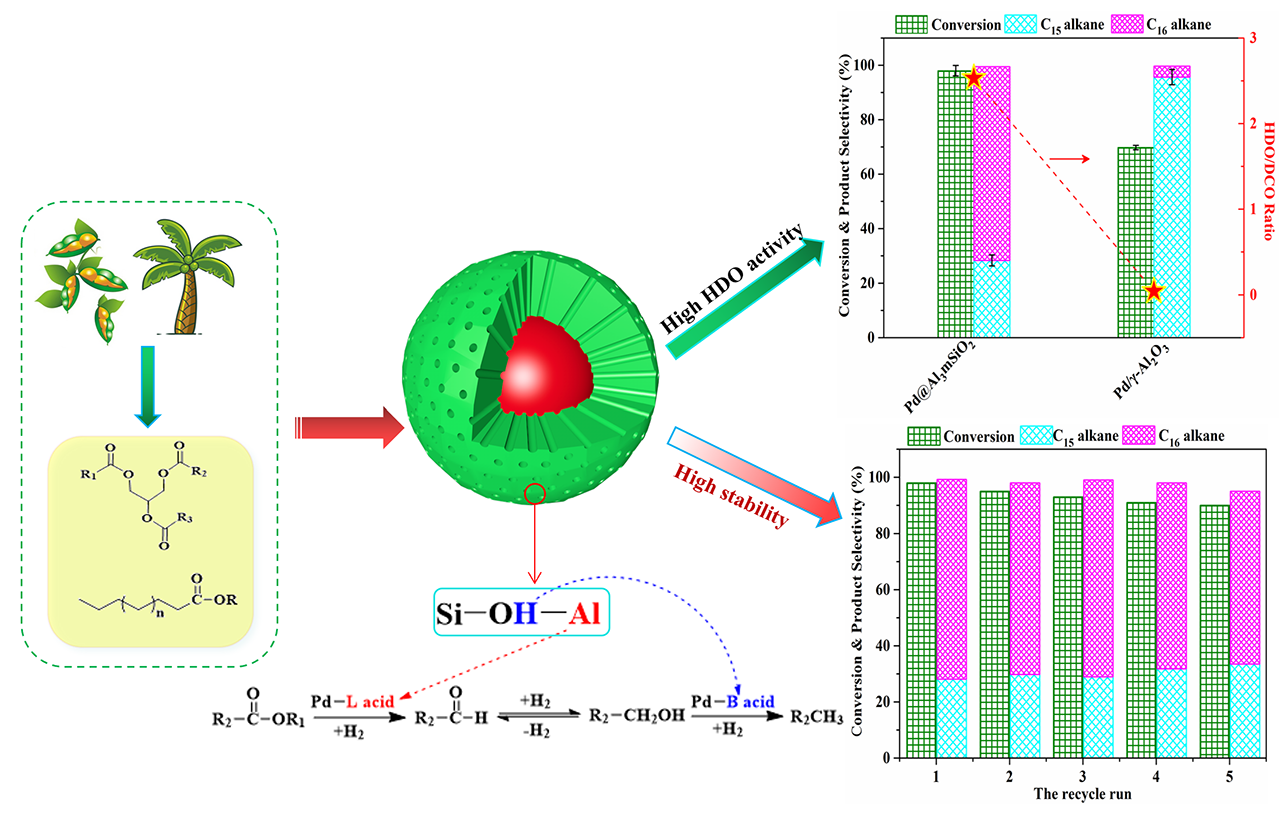Efficiently converting woody lipids into second-generation hydrocarbon biodiesel and high value-added chemicals - fatty alcohols through selective hydrodeoxygenation under mild reaction, is significant to achieving low-carbon and high-value utilization of forest biomass. Based on the exploration of the mechanism of oil hydrodeoxygenation reaction, the research team of Prof. Jiang Jianchun, Academician of the Chinese Academy of Engineering, from the Institute of Chemical Industry of Forest Products, Chinese Academy of Forestry, created a series of lipids hydrodeoxygenation catalysts with high efficiency and high stability, such as Pd@Alx-mSiO2 nanocore-shell catalyst and NiRe bimetallic catalyst, to convert wood-based lipids into high-yield diesel chain alkanes and fatty alcohols through selective hydrodeoxygenation under mild reaction conditions (reaction temperature is below 280°C).
Based on the characterization and theoretical calculation results of the catalyst, the structure-activity relationship between catalyst structure and performance was discovered at the molecular level for the first time, revealing the synergistic catalytic effect of metal sites, Lewis and Brønsted acid sites in the process of catalyzing the hydrodeoxygenation of oils, which provides a theoretical basis for catalyzing the deoxygenation of woody oils into hydrocarbon biodiesel and fatty alcohols under mild reaction conditions. The research results (2 papers) have been published in the journal Applied Catalysis B: Environmental.

Schematic diagram of deoxidation and conversion of oil into diesel chain alkanes using Pd@Alx-mSiO2 nanocore-shell catalyst